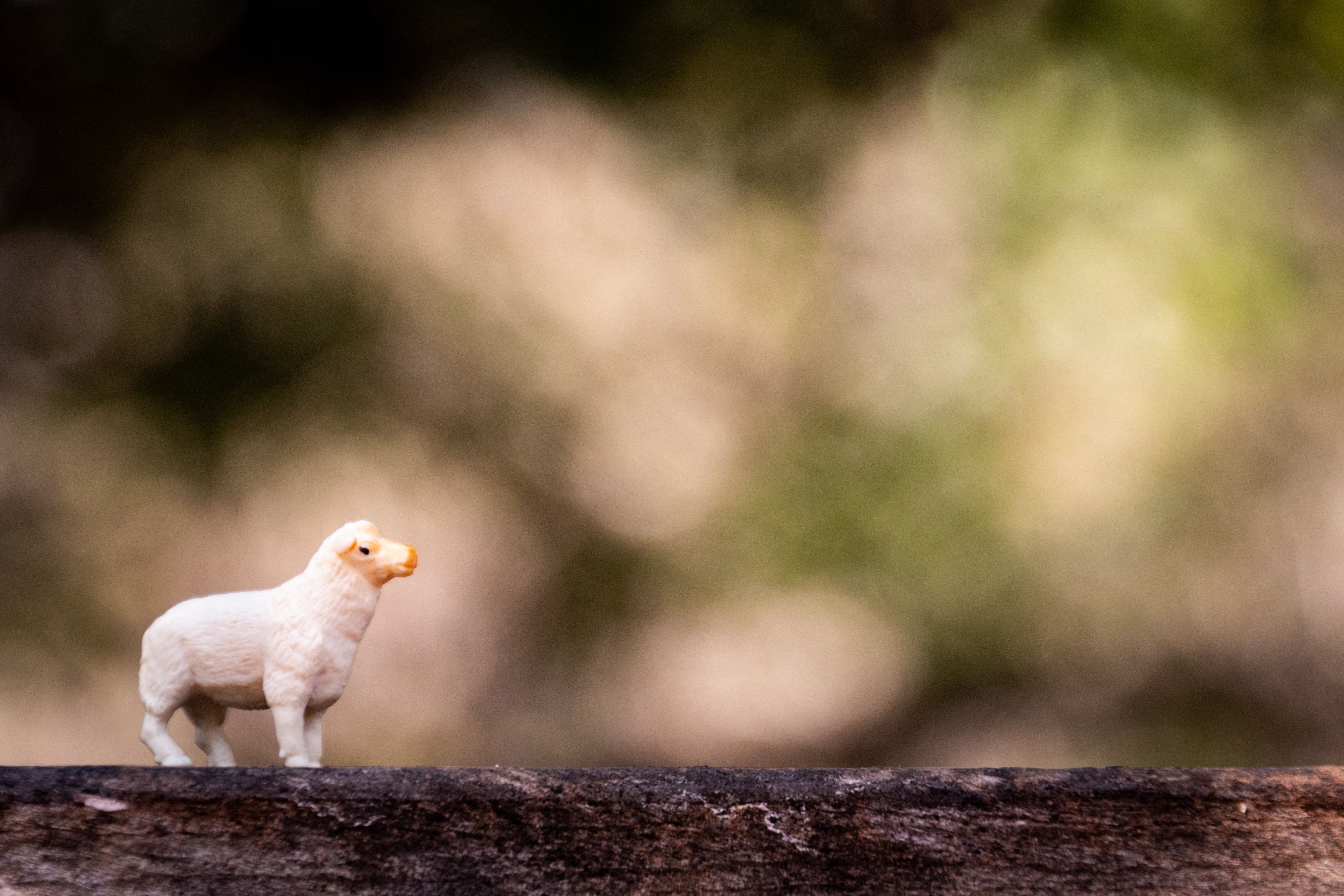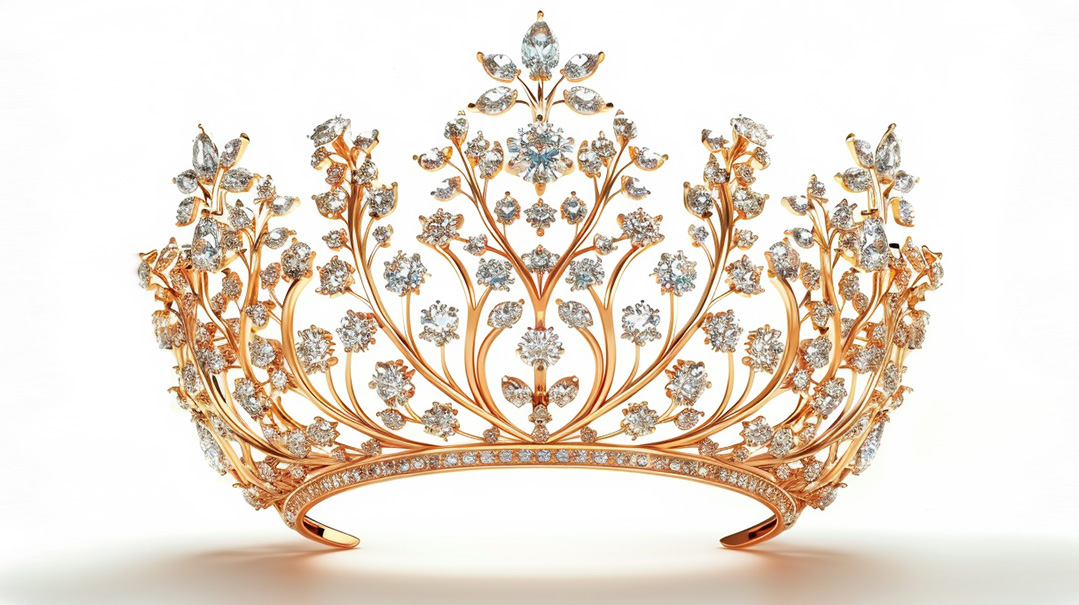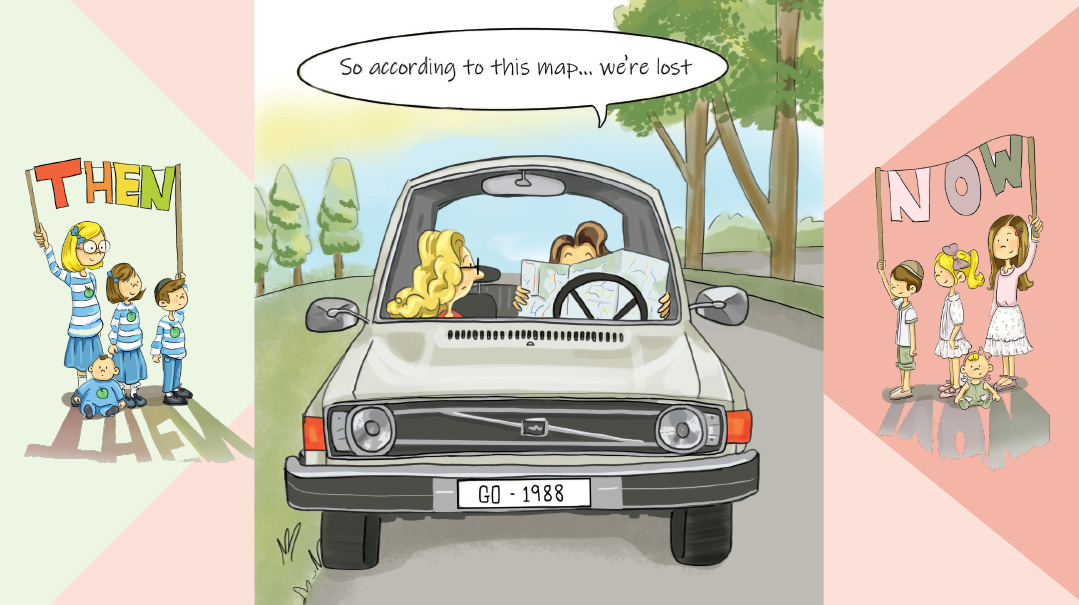First Of The Flock
| March 23, 2011From an early age, firstborns can take on adult traits because, being the oldest, their role models are usually grownups

If you’re a firstborn, are married to one, or gave birth to one, you may be familiar with the typical personality traits: strong-willed, confident, determined, driven, organized, reliable, and super responsible. Family First looks at why oldest children turn out that way, the benefits and pitfalls of being born first, plus how to best parent your bechor or bechorah
At the age of eight, firstborn Karen Stein*, was given instructions on how to do something by an adult in the family. “How can you tell me what to do? I’ve already raised four children!” replied Karen, now a grandmother living in Silver Spring, Maryland, referring to her younger siblings.
That strong-willed confidence is typical of oldest children, who are often leaders of the pack, second-in-command after mother and father, and role models for the children who follow.
Research indicates that firstborns can be determined, driven, hardworking, organized, scholarly, and super-conscientious. They’re known to have very strong personalities, making them suited for leadership roles. Studies have consistently revealed that oldest children tend to excel academically, and often pursue intellectual professions in the fields of science, medicine, or law.
When it comes to exacting, precise work like engineering, bookkeeping, and accounting, firstborns also take the cake, explains Dr. Kevin Leman, author of The Birth Order Book (Revell, 2004). According to him, firstborns come in two types: the strong-willed movers and shakers, and the reliable, conscientious do-gooders.
Are oldest children born with these characteristics — or do they develop them as a result of their birth order? What are the pluses and minuses of being the oldest? And what should parents keep in mind when raising their firstborn?
As an oldest myself, I found these questions fascinating. Here are the answers I turned up:
Coming in First Place
Birth order isn’t a “cookie-cutter process,” Dr. Leman admits, but it has proven to be a helpful tool in understanding where a person is coming from and how his or her personality has been molded.
A child with firstborn traits doesn’t always have to be the actual firstborn, adds Rabbi Zecharya Greenwald, principal of Meohr Bais Yaakov and author of Preparing Your Child for Success (Artscroll/Mesorah, 2005). In frum families, there can be more than one “oldest” — the eldest son or daughter, even if not the actual firstborn, often exhibits firstborn traits. Similarly, the oldest child after a gap in the family or in a line of boys or girls can be considered a “firstborn.”
Whether someone is the actual bechor or the first boy after a string of girls, he can count on being watched — by his parents and by all the younger siblings. “An oldest child tends to feel a sense of responsibility — he or she is leading the flock,” says Rebbetzin Malka Kaganoff, author of Dear Kallah (Feldheim, 1993) and longtime chinuch advisor.
Tova Weissman*, the eldest of six, is familiar with this reality: “Many of the family decisions were paved with me. I was the first to reach every milestone, so where I went to camp, which seminary I attended, and how my chasunah looked set the tone for the rest of the family.”
From an early age, firstborns can take on adult traits because, being the oldest, their role models are usually grownups. They generally thrive on being in control, on time, and organized — all characteristics that stand adults in good stead.
This is a good description of Blimie Deutsch*, an oldest of nine: “I’m definitely a perfectionist, much more so than any of my siblings. I need to do everything to a T.”
Having adult role models might also explain how Tova developed her personality. “I was the G.O. president in high school and I always organized the family get-togethers. Now I run the Nshei in my neighborhood and I’m very much a doer. My days, weeks, and months are all scheduled. I’m very goal-oriented, constantly asking myself Is this where I want to be, where I want to be going?”
But the biggest factor that shapes firstborns is their parents. Oldest children are generally on the receiving end of far more attention than their younger siblings, and are raised by far less experienced parents, explains Dr. Leman. This inevitably results in a measure of over-protectiveness and over-anxiety. (Rabbi Greenwald jokes that a bechor receives a double portion because his parents make all their mistakes on him.)
Most older siblings also say that their younger siblings — especially if there’s a large age gap — were raised by far more permissive, laidback parents. This is natural, explains Rebbetzin Kaganoff, because “parents start off raising their children with rules and expectations, and later end up bending the rules, either because they find the rules are unnecessary or because they don’t have the energy to enforce them anymore. The oldest children in a family are therefore raised with more rules and structure — and more expectations.”
High Expectations
Because of their age, oldest children can often do things that their younger siblings can’t, which means parents end up turning to them for help first — and often. The “mommy’s little helper” stage of life starts almost as soon as a second child enters the scene.
“In my family, the first four of us are very close in age, and we were raised as a bunch. We all did the same thing at the same time,” says Tova. “Yet I still had a lot of responsibilities, and to this day, I’m a very responsible type.”
Figuring out the right level of responsibility for firstborns is essential. As Blimie says, “Although I did have more jobs than some of my younger siblings, my mother never overburdened me, and whatever jobs I did were always suited to my age and inclination.”
When a house is packed with kids and hired help is not an option, it can be hard for parents to resist relying on their firstborns. Rebbetzin Kaganoff notes that “as a child becomes more responsible, the parent ends up leaning on the child more, which can sometimes be detrimental and lead to resentment.”
Take, for example, Karen, who was expected to do all the cleaning for Shabbos. “I felt very taken advantage of, and I resented it. I didn’t want to be the one doing everything. To this day, some people still treat me the same way — ‘We know you’re a capable person, so why should we do anything for you?’$$separate quotes$$”
In some cases, an oldest can act responsibly for so long that at a certain point he or she can explode from the pressure of always being expected to do the right thing. This is what happened to Karen, who relates: “My mother relied on me far more than was healthy. When I went away to Stern College at sixteen, I came home and erupted [from everything I was expected to do]. Children should never be expected to play a role too close to the parent — it creates resentment and isn’t good for anyone.”
What’s more, Karen’s extra responsibilities weren’t matched with additional privileges. This should never be the case, says Rabbi Greenwald. “There is no such thing in Yiddishkeit as privileges without responsibility. A Levi has more privileges than a Yisrael, and he has more responsibilities, too. A Kohen has more privileges than a Levi, and more responsibilities, too. It’s the same with an oldest child — if he has more privileges, he also has greater responsibilities.” One without the other can be toxic.
The Perks of Being First
As any youngest sibling will tell you, their oldest brothers and sisters didn’t have it all bad. “I feel privileged to have certain memories that my younger siblings, who were born later, don’t have,” says Tova. “Family trips we went on, places we lived. I am also much closer to my grandparents than my younger siblings are. I was raised on Bubby’s chocolate chip cookies, and my younger siblings didn’t get that because Bubby wasn’t up to it anymore by the time they came around.”
“I’m a natural leader,” Blimie concurs, “so as a kid, I enjoyed doing everything ahead of my siblings. Of course, they caught up pretty quickly — the brother under me is only a year and a half younger than I am. But I still had an advantage. I got to stay up later than the other kids, and as I got older, I was let in on family secrets before the younger kids were.”
There were other benefits of being the bechorah: “When I was a kid, I was very shy in social settings, but at home I was the queen bee. As I’ve grown older, I’ve outgrown my shyness, but if I wasn’t the oldest, I think I’d probably have a lot less self-confidence than I have today,” Blimie relates.
The skills you perfect as a firstborn can prove invaluable later in life, too. “When my husband passed away at the age of thirty-nine, I had to hold down two jobs and raise seven kids on my own. The take-charge role I’d been handed as a child came in handy,” says Karen.
Tempering Firstborn Traits
Sometimes, the characteristics that make oldest children successful can also cause problems if they go unchecked. For example, a firstborn with “natural leader” qualities could easily become a little dictator over his or her younger siblings. “My brothers always thought I was bossy,” Tova recalls. “They called me ‘Mother Hen.’ I recognized that it bothered them and this awareness helped me in my own parenting.”
Blimie admits guilt in this area, too: “I’m glad there was no one on top of me passing judgment the way I did to my siblings!” she confesses. “I was a very critical older sister, and I don’t think my siblings enjoyed it that much. But they definitely developed thicker skins than I did.”
Sometimes, it takes a spouse to inspire a change in behavior. “My husband helped me temper my personality,” Karen relates, “He was a strong person, but much quieter than I am. Over the years, I learned to be less commanding, but still as dependable.”
Oldest children, as they age, also have to contend with the often extremely high expectations that were imposed on them as kids. “I still have that perfectionist streak in me — it’s part of my nature now,” says Blimie. “Being an oldest is great, as long as you have realistic expectations of yourself. It’s important to know yourself, to know what your natural tendencies are so you can work with them.
“I don’t think my parents ever put pressure on me to succeed, but I certainly put a lot of pressure on myself. The fact that both my parents are high achievers didn’t make things easier for me! Eventually, I learned that I could stop pushing so hard and just be myself, and things became a lot easier.”
That’s a lesson we could all use, whether we’re the oldest, youngest, or somewhere in the middle.
*Name has been changed
Raising Firstborns
How parents can best parent their oldest children:
- Ask for help. “Raising an oldest child is difficult because parents are inexperienced,” says Rabbi Greenwald. “Don’t be afraid to ask an eitzah.” For example, if you don’t know what an age-appropriate goal for your bechor is, seek advice from someone older and wiser than you.
- Focus on the child, not his birth order. “We’re sometimes afraid that our oldest will set the tone for everybody else. Sometimes it’s true, sometimes it’s not. You can’t raise a child based on your expectations for the next children — you need to raise them according to who they are,” Rabbi Greenwald explains.
- Don’t over-rely on your oldest (especially if she’s a girl). Kids deserve a childhood; if you need a mother’s helper or a maid, your bechorah isn’t it.
- Size up the situation. Some children enjoy helping out, while others don’t. Some firstborns can handle more than others. Before you assign any tasks, consider what your child is capable of.
- Give Privileges Along with Responsablities. If your daughter watches your younger kids so you can daven Minchah in peace, consider giving her a little something sweet afterwards. No child should be given extra responsibilities that don’t come along with extra privileges.
- Help your firstborn develop the right drive. Make sure that he doesn’t push himself too hard to please you or himself. “There’s nothing wrong with being a driven person, unless the person is driven to an unhealthy place. If a child is driven to distraction, depression, or anxiety, that’s unhealthy, and the parents need to help him slow down and refocus,” explains Rabbi Greenwald. “We’re supposed to be driven, but one has to be happy with his achievements. You can inspire your child and help him do well, but the drive has to come from within him.”
- Pour on the praise. Let your child know that you’re proud of him. Many oldest children are so bent on achievement that they don’t realize how much their parents value what they’ve already achieved.
(Originally Featured in Family First)
Oops! We could not locate your form.











